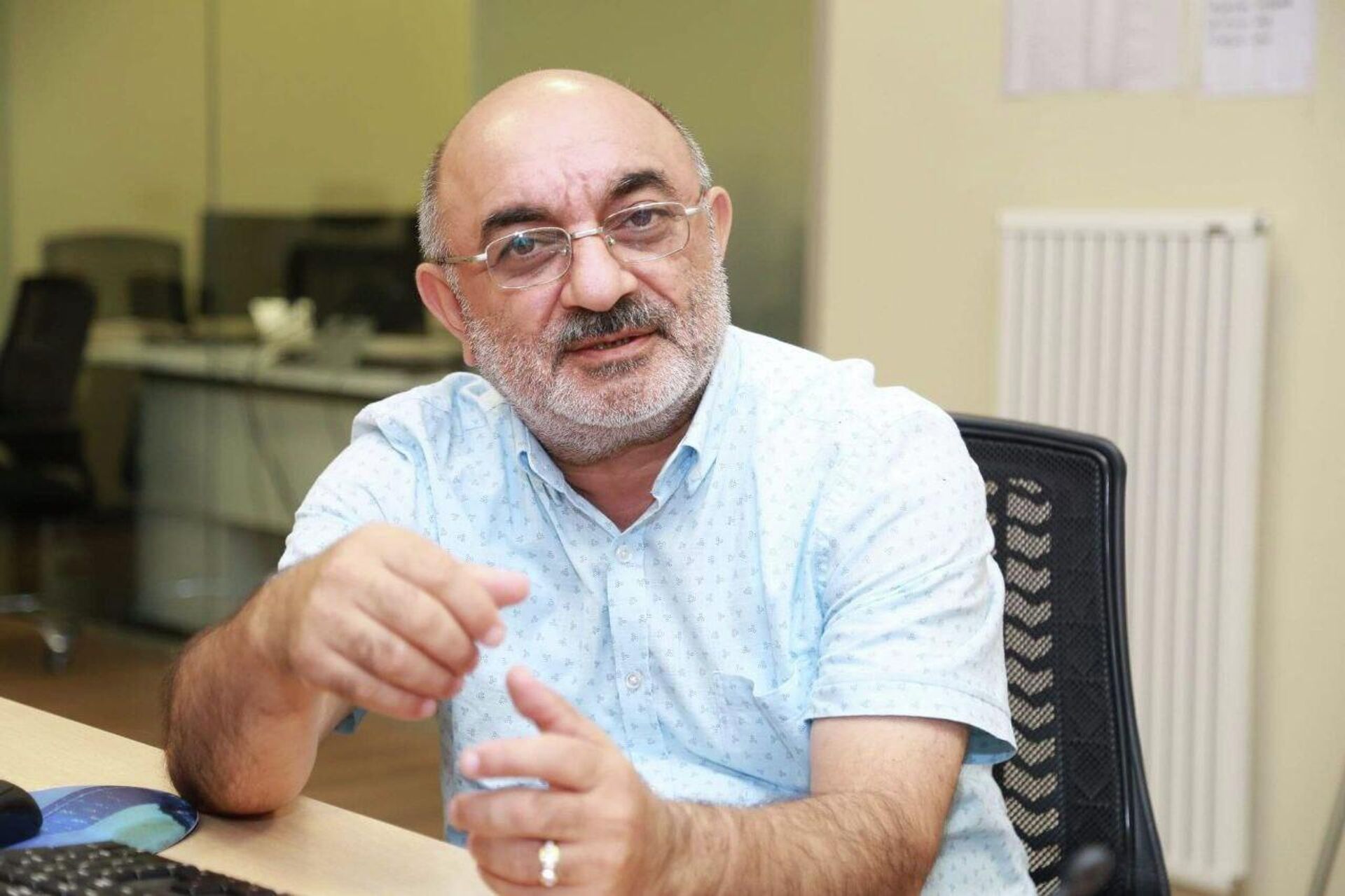Iran's desire to restore relations with Baku stems from its jealousy of Turkish President’s recent visit

Turkish President Recep Tayyip Erdogan's first state visit to Azerbaijan after being elected as president has ended. In addition to discussing many important issues, serious messages were also given to other countries. It is no coincidence that during the Turkish President's stay in Baku, the Iranian Foreign Ministry voiced its proposal regarding the restoration of frozen diplomatic relations. This can be considered as a serious reaction of the Iranian side to the processes.
According to the political analyst Sadraddin Soltan, head of the Middle East Research think tank, Iran's initiative is related to its intolerance to accept Turkiye's growing influence in the region.
"The Turkish president's statement regarding the visit to Baku and the opening of the Zangazur Corridor certainly worries Iran. Because Iran is one of the countries that does not want the opening of the corridor," the expert said.
In his comment for Azernews, Sadraddin Soltan also shed some light on the Iranian official's statement regarding the re-opening of the embassy.

"The statement regarding the reopening of the embassy are a continuation of the Iranian government's policy of restoring and developing relations with neighboring and other Muslim countries. Because the Iranian authorities have always engaged in illegal disruptive activities against neighboring and non-neighboring countries. The regime pretends to have good relations with Muslim countries from now on. In this regard, Iran's desire to restore relations with Azerbaijan stems from the jealousy of the Turkish leadership regarding the state visit to Azerbaijan," S.Soltan added.
The think tank head also spoke about the prospects of Iran's future cooperation with Azerbaijan in large-scale projects, including in the field of diplomacy.
"Earlier, it was proposed that the Iranian side could participate in many projects, for example, hydrocarbon projects passing through the territory of Azerbaijan, including the Baku-Tbilisi-Ceyhan main oil and gas export pipeline. In the present case, it is not possible for Iran to participate in big projects such as TAP, TANAP, TransCaspian. For this, Iran must comply with some conditions. She should normalize relations with Azerbaijan, stop disruptive activities in the region, and most importantly, she should follow the offers and conditions of the Western bloc, led by the United States. In addition, the Iranian side should abandon its suspicious nuclear program, cooperate with the International Atomic Energy Agency and provide transparency in this regard. The Iranian side must respect human rights and territorial integrity of the neighboring states such as Syria, Iraq, Yemen, Palestine, Afghanistan, Azerbaijan, etc. and stop the interference. Besides, its disruptive and terrorist activities must be stopped in Central Asia. The attitude towards Israel and the US should change. If these conditions are met, Iran can participate in regional energy projects. Even new energy project lines can pass in their region. In the near future, as long as the regime in Iran is in power, it is very unlikely that Iran will participate in regional projects," the expert said.
He also touched upon the cooperation between Iran and Armenia in the field of energy and noted that in the current situation, Iran does not have the potential to supply Iran with energy.
"There is an agreement between Iran and Armenia in this direction. Iran provides natural gas to Armenia, and Armenia provides electricity to Iran in return. For this, Armenia plans to build power plant blocks in the territory of the country. The existing Metsamor Nuclear Power Plant is not large enough to export enough electricity to Iran. The reason is that the country that built the nuclear power plant is Russia, and secondly, Russia is not interested in working with the current government in this direction. The unstable position of the political power of Armenia hinders investment flow in this country. For this reason, the probability of not only mutual implementation of the project being talked about, but also its implementation in general is close to zero. Because currently, there is no country that provides financial aid to Armenia, whose political and economic power is at risk."
In conclusion, the expert talked about the negotiations between the Ministry of Foreign Affairs of Azerbaijan and Iran. He noted that if Iran does not accept Baku's conditions, it is impossible to melt the frozen diplomatic relations between the two countries.
"Negotiations are being conducted between Azerbaijan and Iran's MFA in various directions. Iran's ambassador to Azerbaijan, Abbas Mosevi, held meetings with various state institutions in Baku and tried to show goodwill towards Azerbaijan, but official Baku does not trust Iran's approach. Because Iran did not accept a number of conditions offered by Azerbaijan. Ensuring the security of Azerbaijan's embassies in Iran, investigating the terrorist crime committed in January, even presenting this terrorist act under the name of "family issue", as well as putting pressure on the country through the "Huseiniyyun" terrorist organization created by the IRGC, reduces Azerbaijan's trust in Iran," the expert underlined.
---
Rena Murshud is AzerNews’ staff journalist, follow her on Twitter: @RenaTagiyeva
Follow us on Twitter @AzerNewsAz
Here we are to serve you with news right now. It does not cost much, but worth your attention.
Choose to support open, independent, quality journalism and subscribe on a monthly basis.
By subscribing to our online newspaper, you can have full digital access to all news, analysis, and much more.
You can also follow AzerNEWS on Twitter @AzerNewsAz or Facebook @AzerNewsNewspaper
Thank you!

